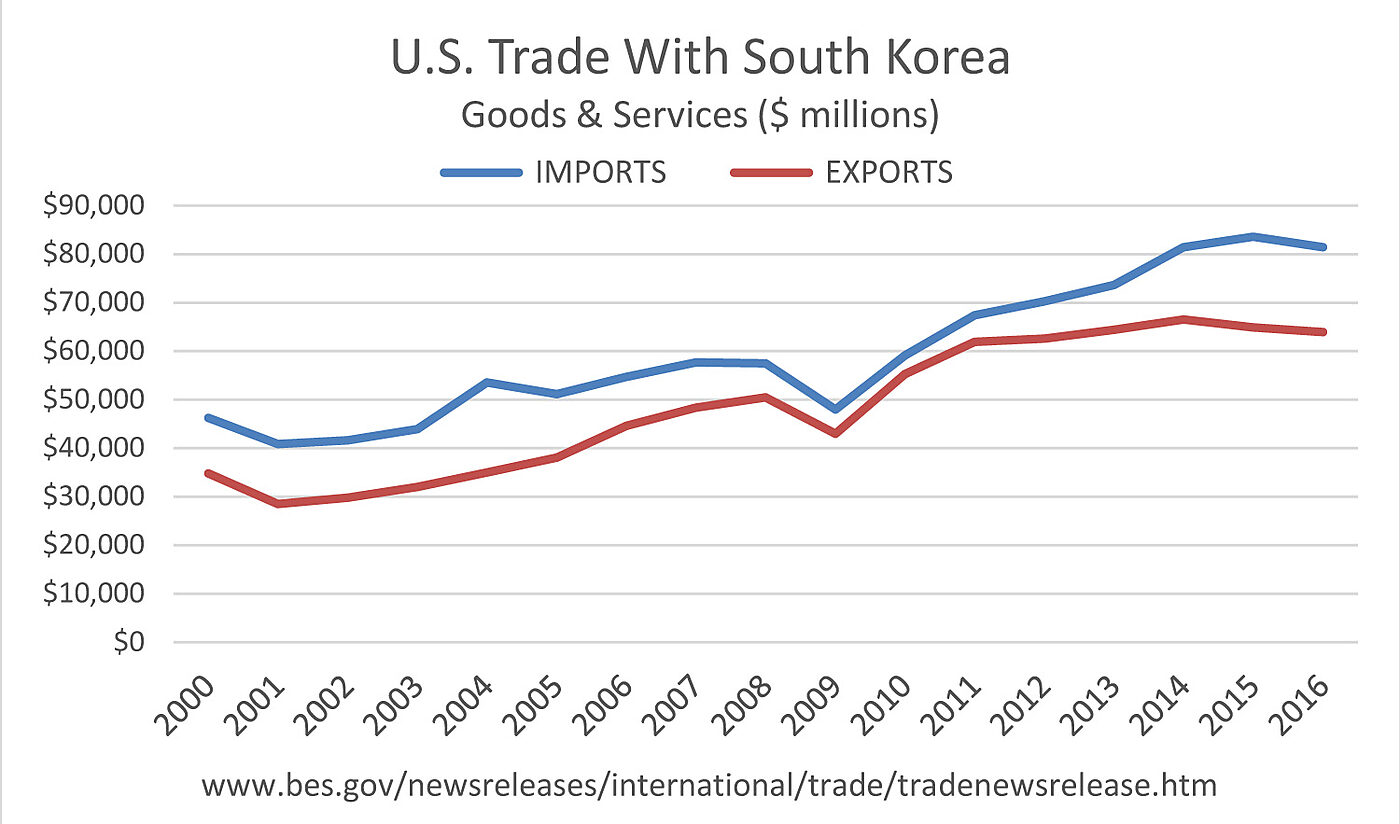With this blog post, I’m taking a quick break from trying to figure out President Trump’s trade policies. (Is this going to be the most protectionist presidency ever? Or will it end up looking not too different from a typical presidency? The conflicting signals are making my head spin!) Instead, I want to talk about an issue that Dean Baker keeps raising: Whether U.S. trade policymakers are hypocritical because they have liberalized a lot of trade in manufactured products such as steel, but not very much trade in professional services such as medical care. (See here, here, here, here, here, here, and here for examples of his references to this. I think there are more–he talks about this a lot!–but those links are a start). Here is his latest:
We have largely left in place the protectionist barriers that keep doctors and dentists from other countries from competing with our own doctors. (Doctors have to complete a U.S. residency program before they can practice in the United States and dentists must graduate from a U.S. dental school. The lone exception is for Canadian doctors and dentists, although even here we have left unnecessary barriers in place.)
As a result of this protectionism, average pay for doctors is over $250,000 a year and more than $200,000 a year for dentists, putting the vast majority of both groups in the top 2.0 percent of wage earners. Their pay is roughly twice the average received by their counterparts in other wealthy countries, adding close to $100 billion a year ($700 per family per year) to our medical bill.
While trade negotiators may feel this protectionism is justified, since these professionals lack the skills to compete in the global economy, it is nonetheless protectionism, not free trade.
I agree with Dean that we should have more free trade in medical services, but the question is, why has this not happened? Is it because, as he says, “trade negotiators may feel this protectionism is justified”? As with many things, the answer is complex and has a number of components, but the short answer is that trade negotiators are not saying that protectionism is justified here. To understand the actual hurdles to liberalization in this area, you need to know how trade liberalization happens as part of a trade negotiation. If trade negotiations were run by pure free traders, they would be quick and easy. Both sides would just show up and explain that they were liberalizing all of their goods and services trade. That would be the end of it. In reality, though, there is a mercantilist logic to trade agreements. One side demands that the other open up its market in particular sectors, and the other side demands similar market opening in sectors of interest to it. In response to these demands, each side may resist opening up its own market to some extent, but it will nevertheless make what are referred to as market opening “concessions” in its domestic market in order to get the other side to open its market. It’s not pretty, and it’s not ideal, but this approach has had a good amount of success in liberalizing trade over the past few decades.
The importance of this process to Dean’s point is that U.S. trade negotiators generally don’t go into a trade negotiation offering up market opening. Rather, they respond to demands from the other side.
With this in mind, turning to the medical sector, the question is, are foreign governments demanding that the U.S. government liberalize its process for allowing foreign doctors to work here, and are U.S. trade negotiators resisting?
I have never heard that this is happening, but if Dean has evidence otherwise, I would love to hear it. And I can imagine a reason why it is not happening. Would foreign governments really want to press for something that would lead to their doctors leaving their country? For this reason, I suspect most of them are not pushing this as an area of liberalization (and more generally, the large role of many governments in the health care sector probably makes them reluctant to put these services on the negotiating table). Overall, then, I’m skeptical that his story of U.S. trade negotiators resisting liberalization in medical services is accurate.
My challenge to Dean, then, if he really wants to see the U.S. medical services market liberalized (he may just be using this as an excuse to criticize trade liberalizaton in other sectors), is to sort through the various domestic reasons–at the federal and state level — why the U.S. market is still somewhat closed in this area. Then, he would have to figure out the key actors involved who would need to be convinced to change the existing system, and talk to them directly. It would be a lot of work, and much of it will be at the state level. But it’s a task worth doing (and I’m happy to help him on it!). The solution would likely involve some form of mutual recognition agreements between governments allowing doctors to practice across borders.
By contrast, his criticism of trade negotiators misunderstands the hurdles to liberalization here, and is not likely to help solve the problem.
